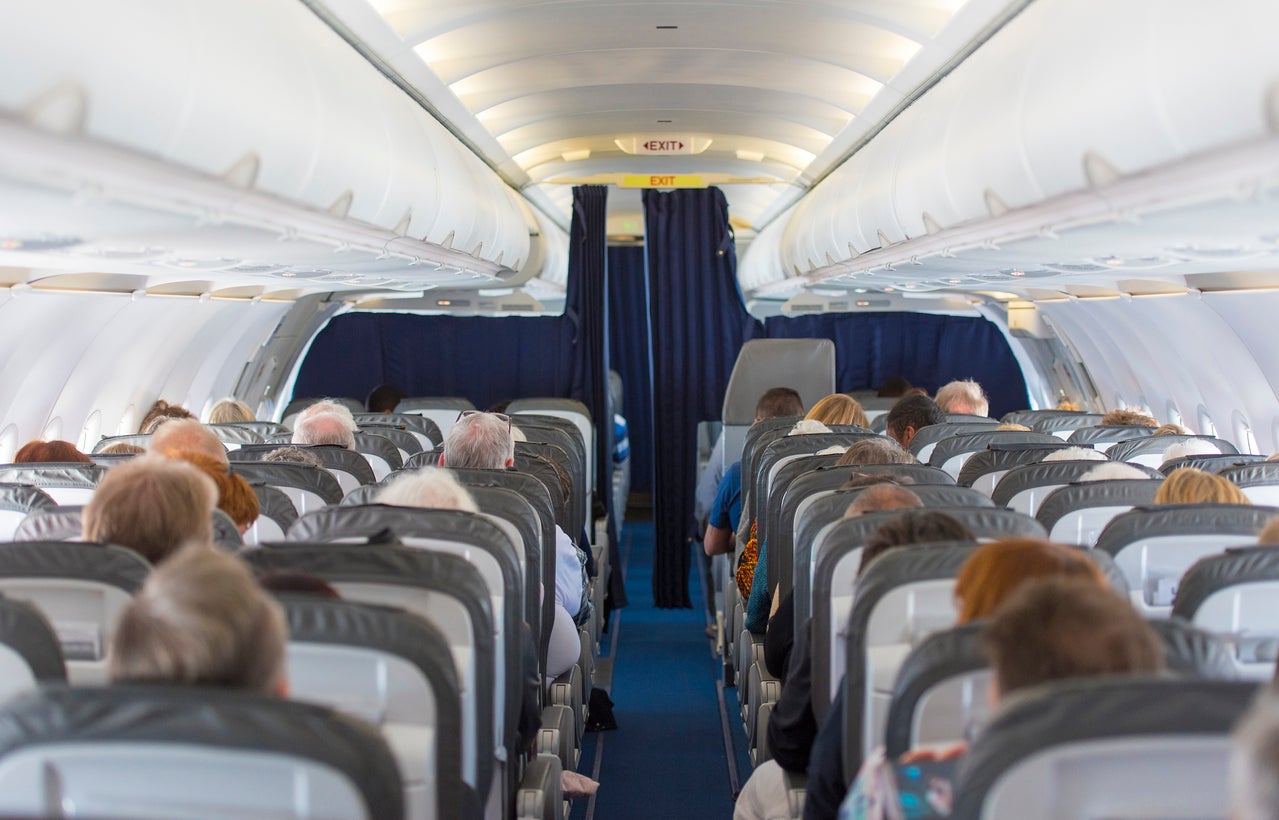Coronavirus: Airlines not spacing out passengers on flights even when there are free seats
Passengers have ended up seated next to strangers despite room for distancing on board

Your support helps us to tell the story
From reproductive rights to climate change to Big Tech, The Independent is on the ground when the story is developing. Whether it's investigating the financials of Elon Musk's pro-Trump PAC or producing our latest documentary, 'The A Word', which shines a light on the American women fighting for reproductive rights, we know how important it is to parse out the facts from the messaging.
At such a critical moment in US history, we need reporters on the ground. Your donation allows us to keep sending journalists to speak to both sides of the story.
The Independent is trusted by Americans across the entire political spectrum. And unlike many other quality news outlets, we choose not to lock Americans out of our reporting and analysis with paywalls. We believe quality journalism should be available to everyone, paid for by those who can afford it.
Your support makes all the difference.UK airlines are not proactively spacing out passengers on board flights even when there are free seats available for them to do so according to Which?.
Based on its research into airline load factors (number of occupied seats), the consumer champion found that “several airlines regularly had free seats available to leave a gap between social bubbles of passengers but weren’t doing so”.
British Airways had a load factor of just 27.6 per cent in the three months leading up to June this year, which means there’s plenty of room to distance on flights.
While it doesn’t proactively distance groups of passengers during seat allocation, it does allow them to pre-select their seats for free 24 hours before departure, which means they are more likely to be seated next to people they’re travelling with.
But such distancing is more difficult on airlines where passengers must pay in order to choose their seats.
According to Which?, Wizz Air had an average load factor of 55.5 per cent in the three months leading up to June this year, which meant that around every third seat would be empty.
But the airline’s random allocation seating policy wasn’t modified during the pandemic, which meant passengers were often seated in clusters and split up from those in their group unless they had paid extra to sit together.
One Wizz Air passenger ended up seated between two strangers before being allowed to move to an empty row once boarding was complete.
Another passenger was separated from his partner by the random seating system – they paid extra to sit together before finding out, once they had boarded, that there were plenty of free seats and there was no need for them to be split up.
Wizz Air said: “If load factor on the plane is low, Wizz Air crew are allowed to reseat passengers to support physical distancing, as well as ensuring the weight and balance of the aircraft remains in line with respective safety regulations.”
The airline also told Which? that it “fully meets all local and international health requirements” and has taken “every precaution to ensure that the health, safety and wellbeing of its passengers and crew is protected”.
Ryanair had a much higher average load factor of 73 per cent, but Which? said it had received reports of groups of passengers being split up and seated next to strangers despite there being space on board flights to allow physical distancing between social bubbles.
Ryanair told Which? that it could not change “these pre-selected seating arrangements because boarding passes are issued up to 28 days prior to departure” but that it “continues to comply with all ECDC and EASA Covid-19 health guidelines”.
EasyJet, with an average load factor of 88.9 per cent, is also not proactively seating passengers apart prior to boarding even when there are seats, according to Which?. Passengers are however allowed to change seats once boarding has been completed.
The European Union Aviation Safety Agency (EASA) has advised: “In addition to the other health and hygiene measures that must be observed at all times, when allowed by passenger load, cabin configuration, and aircraft mass and balance requirements, aircraft operators should ensure, to the extent possible, physical distancing among passengers.
“Family members and individuals travelling together as part of the same household can be seated next to each other. The seat allocation process should be modified accordingly.”
Which? is now calling on airlines to remove paid-for seats during the pandemic so people could stay in their social bubbles and avoid switching seats once everyone has boarded.



Join our commenting forum
Join thought-provoking conversations, follow other Independent readers and see their replies
Comments